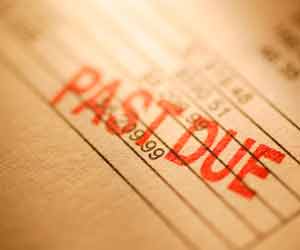Collection Jobs at Banks
Collecting on past due accounts, whether they are mortgages, car loans, or credit cards, is not the most attractive part of the banking business, but it is one that is absolutely necessary if a bank is going to maintain profitability.
Today, there are many independent collection companies that banks, credit card companies, and other companies turn to, to collect outstanding debt. Still, most banks and financial institutions prefer to try and collect past due amounts through their own employees before going to the expense of bringing in an outside firm. Most outside firms make the revenues by keeping a percentage of all past due monies collected. That is why the majority of companies prefer to make all initial efforts themselves, before going to outside agencies.
Collectors will spend their days going through a list of past due accounts and trying to collect the amounts, usually by contacting the account holders on the telephone. Most large banks and financial institutions use automated phone dialing systems that attempt to contact past due accounts. Collectors will only be connected to the customer when the system recognizes it has the actual customer on the phone. This improves the number of accounts a collector can work with each day, because he or she is not spending so much time dialing the numbers of people who are not home or do not answer the phone.
Account holders are offered the opportunity to make a payment by phone or online. These options are fairly recent developments. In the past, collectors could only take “promises to pay” from customers, and hope they sent in their checks.
Collectors may also send out computer-generated letters to customers (or they are generated automatically), if after several attempts to contact them, payment is not received.
Depending on the type of account the collector is trying to collect on, he or she may be able to offer other alternatives, such as debt repayment plans, so that the account holder does not lose his or her home, vehicle, or use of the credit card.
In worst case scenarios, some advanced collections specialists will need to know how to do or start skip-trace work, methods designed to track down account holders who appear to have moved from the address on record with the bank. The collector may have to recommend and start repossession or foreclosure action on the account holder.
Federal laws regulate how often and when collectors can attempt to contact account holders, in an attempt to prevent businesses from harassing their customers.
Collectors must know these regulations and abide by them. Advanced collectors must also know the legal requirements for repossessing a car or foreclosing on a home.
How about airplane repossession jobs as a career?
While most people do not initially choose collections as a career, some find overcoming the challenges associated with it fulfilling and rewarding.
This is not, however, the career for everyone. Collectors must be prepared to face many unhappy account holders, especially when the economy is in a bad state and a lot of people are unemployed and unable to pay their bills.
Collectors must learn how to walk a fine line of good customer service, empathetic discussions, and firmness in collecting the outstanding funds. A good collector will take the approach that this is another opportunity to provide excellent service to the customer, while recovering the bank’s past due funds.
In addition to dealing with unhappy and sometimes irate customers, collectors may need to work evenings and weekends in order to speak with customers. They are often easier to contact during the evening and on Saturday, than during the week and normal business hours. So collectors should expect to work some shifts that are outside of normal business hours.
If you enjoy overcoming challenges and turning around problem situations, being a collector at a banking institution, may be the career for you.
There are many collection jobs within any given bank. As mentioned, collectors are needed to recover past due debt on many types of accounts, such as mortgage loans, car and other vehicle loans, and credit cards. However, most perform very similar duties. JobMonkey’s guide to banking jobs looks specifically at the two most common positions in any collections department: the collection specialists, those actually making the calls, and collections supervisors and managers.


 Teach English in Asia
Teach English in Asia  Cruise Ship Jobs
Cruise Ship Jobs  Alaska Fishing Industry Jobs
Alaska Fishing Industry Jobs  Sharing Economy / Gig Economy
Sharing Economy / Gig Economy 